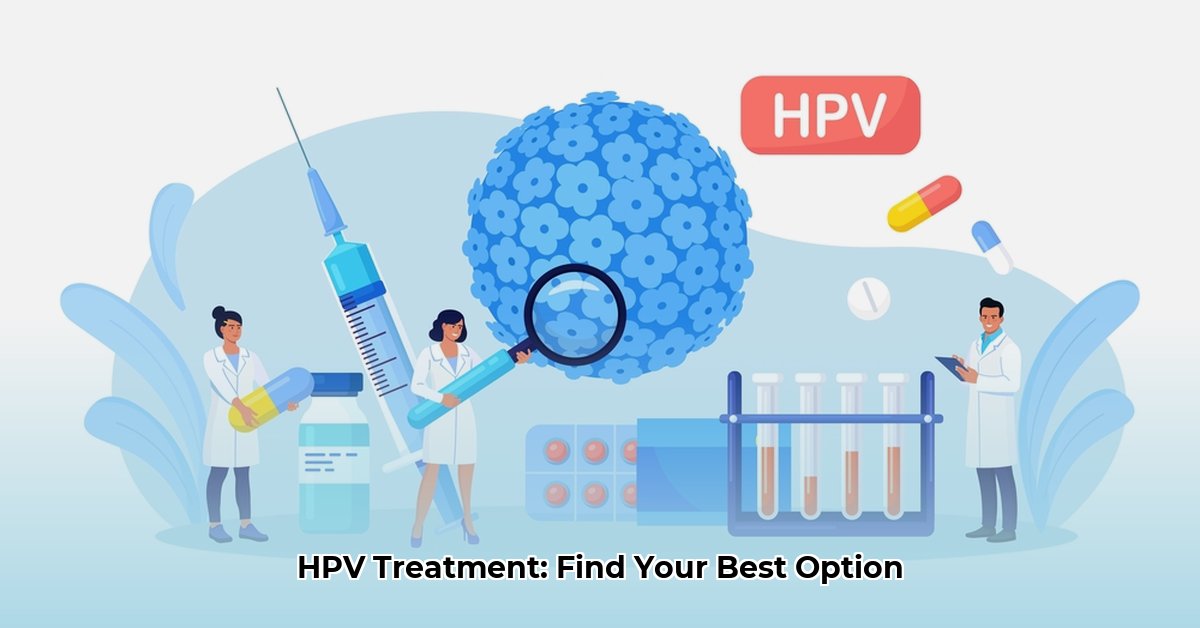
Let's talk openly about the human papillomavirus (HPV). It's a common virus – many people will have it at some point in their lives, and often, their bodies clear it without causing any problems. However, understanding how it spreads, how to prevent it, and what to do if you have it is important for your health. This article explains everything from risk factors to treatment options in clear, easy-to-understand language. We'll cover vaccinations, preventative measures and warning signs to watch out for. Remember, you're in control! Let's explore this together.
Understanding the Different Types of HPV
There are many HPV types. Some are low-risk, meaning they may cause minor issues like genital warts, but usually nothing serious. Others are high-risk; these are linked to cancers, particularly cervical cancer in women, but also cancers of the vagina, vulva, and anus in both men and women. This highlights the importance of regular check-ups.
How is HPV Spread? And Who's at Risk?
HPV spreads mainly through skin-to-skin contact during sexual activity. Having multiple sexual partners increases your risk. Other factors, like smoking and a weakened immune system, can also increase vulnerability. Remember, having HPV isn't something to be ashamed of; it's extremely common. Open communication with your partner(s) is key to managing risk. Isn't open communication vital for preventing the spread of STIs like HPV?
Recognizing the Signs: Often, There Are None
Many people with HPV have no symptoms. This is why regular check-ups are crucial. For women, regular Pap smears are essential for early detection. Men also have screening options; discuss these with your doctor. Early detection is vital when dealing with high-risk HPV. How often should women over 30 have Pap smears?
HPV Virus Behandeling: What Are My Options?
There's no cure for HPV itself. Treatment focuses on managing precancerous lesions or warts.
- Cryotherapy: Freezing abnormal tissue to remove it.
- Surgical Removal: Removing warts or abnormal tissue surgically. This is usually a minor procedure.
- Other Treatments: Your doctor may suggest other options depending on your circumstances.
Prevention: Your Best Defence
Prevention is key. The HPV vaccine is highly effective at preventing infection from high-risk HPV types linked to cancer. It's a simple injection that significantly reduces your cancer risk. Practicing safe sex, including consistent and correct condom use, is also crucial risk reduction. Did you know the HPV vaccine is highly effective against several cancer-causing HPV types?
HPV Virus Behandeling: A Practical Guide to Action
Here's a plan tailored to your situation:
For Women:
- Vaccination: Discuss the HPV vaccine with your doctor.
- Regular Pap Smears: Get regular Pap smears as advised by your doctor.
- Early Detection, Early Action: See your doctor immediately if you notice unusual bleeding or discharge.
For Men:
- Safe Sex Practices: Practice safe sex - condoms are highly effective.
- Open Communication: Encourage your partners to get regular screenings.
- Vaccination: Discuss the HPV vaccine with your doctor.
A Message of Hope and Empowerment
HPV is manageable. Early detection and treatment significantly reduce the risk of serious complications. Don't hesitate to talk to a healthcare professional if you have any concerns. You're not alone, and support is available. Does early detection improve the chances of successful HPV treatment?
Moving Forward: Ongoing Research and Understanding
Our understanding of HPV is constantly evolving. Researchers are continually working on improved prevention methods and treatments. Stay informed by talking to your doctor and checking reputable health websites. Knowledge empowers you to manage your health effectively.
How to reduce my risk of HPV-related cancers after a positive HPV test
Key Takeaways:
- A positive HPV test doesn't mean you'll get cancer. Many infections clear up naturally.
- Regular screenings are vital for early detection of precancerous changes.
- Vaccinations help protect against several cancer-causing HPV types.
- Maintaining a healthy lifestyle supports a strong immune system.
- Understanding your risk and taking proactive steps empowers you.
Understanding the HPV Virus
HPV is common. Many types exist, some harmless, others high-risk and linked to various cancers. A positive test means you have the virus, not necessarily cancer.
What Happens After a Positive HPV Test?
Don't panic. Your doctor will assess your individual risk and recommend follow-up appointments and further testing (Pap smear, colposcopy). These tests detect abnormal cell changes.
Reducing Your Risk: Proactive Steps
This involves a multi-pronged approach:
- Regular Screenings: Essential for early detection. Your doctor will advise on frequency.
- HPV Vaccination: Even after exposure, vaccination protects against other high-risk types.
- Healthy Lifestyle: A healthy immune system is vital. This includes a balanced diet, regular exercise, stress management, and quitting smoking.
- Safe Sex Practices: Consistent condom use and limiting sexual partners reduces new infections.
Treatment Options
There's no cure for HPV, but treatments exist for precancerous cell changes or warts. Your doctor will discuss these options with you if necessary.
Moving Forward with Confidence
A positive HPV test is not a life sentence. Regular screenings, healthy lifestyle choices, and open communication with your doctor empower you to manage your health.